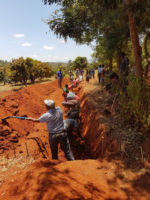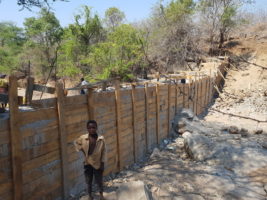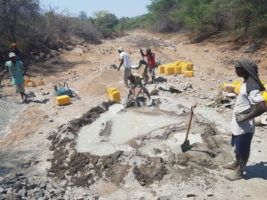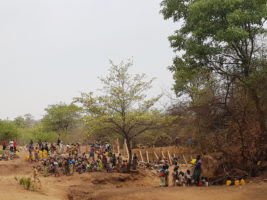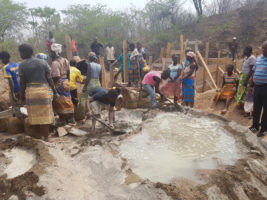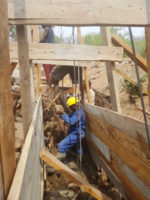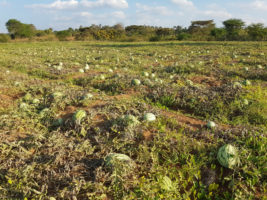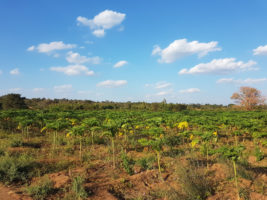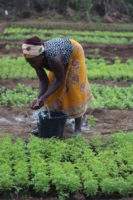Reducing Hunger in Rural Mozambique through Sand Dams and Climate-Smart Agriculture
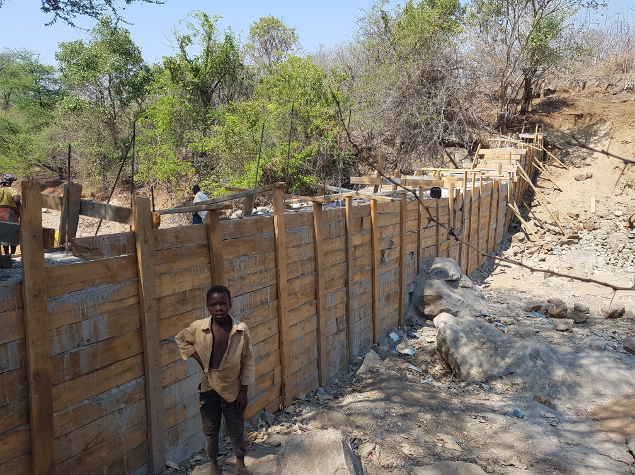
Context:
Mozambique is one of the poorest and most disaster-prone countries in the world. Droughts and floods result in chronic soil erosion and poor soil fertility. This is compounded by harmful environmental practices such as logging, charcoal burning and slash and burn farming. Lack of infrastructures to harvest rainwater result in widespread severe water shortage. The risk of crop failure is high. People also lack knowledge and resources to adopt adaptive farming techniques suited to their increasingly dry environment, and Government extension services lack funding and capacity to reach the most vulnerable communities.
All these troubles hinder efforts to achieve environmental sustainability and to eradicate poverty and hunger. In times of scarcity, poor rural communities have little to buffer them from food insecurity and have to skip meals, sell livestock or participate in short-term food for work programs. Men often turn to deleterious income generating activities such as charcoal production or move to urban areas. Tragically, poverty also sustains the practice of child marriage because dowries provide short-term income for poor families.
Objective:
This project’s overarching goal is to reduce hunger, improve food production and enhance climate resilience in Mozambique. This will be achieved through scaling up a Mozambique country program that supports smallholder farmer associations to build sand dams (6 in Tete Province in 2018-2019 and 4 in a new Province, Manica, in 2020-2023) and practice climate-smart agriculture. This project will also incorporate an element relating to women’s reproductive health.
Activities:
An estimated 10,000 people will benefit from this project through the construction of 10 sand dams in Tete and Manica Provinces. 400 smallholder farmers and their families will also benefit from sustainable agriculture inputs of this project leading to less hunger and poverty. 4 communities will have strengthened capacity to sustain the benefits of this project through self-managed farmer associations. These farmer associations will take ownership of the climate-smart agriculture activities and manage the produce/income generated for communal benefit.
2 peer-learning exchanges between Micaia Foundation, the implementing partner of the project in Manica, and the Africa Sand Dam Foundation (ASDF), Excellent’s strategic partner, will focus on key lessons from ASDF’s Self-Help Group model in Kenya that can be applied by Micaia Foundation to strengthen the post-project impact of their agriculture work with communities.
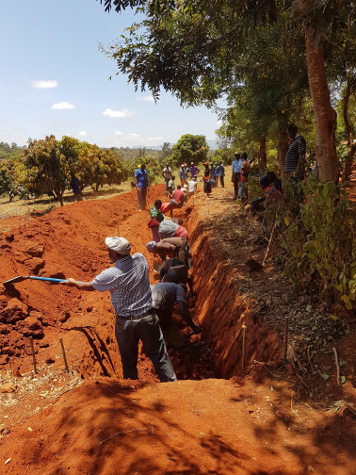
The CCM team learns how to mark out and dig terraces with the Africa Sand Dam Foundation © Excellent Development
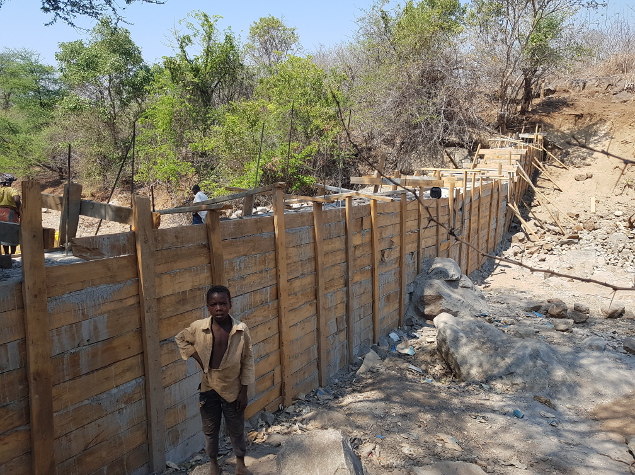
Canchoeira sand dam construction © Excellent Development
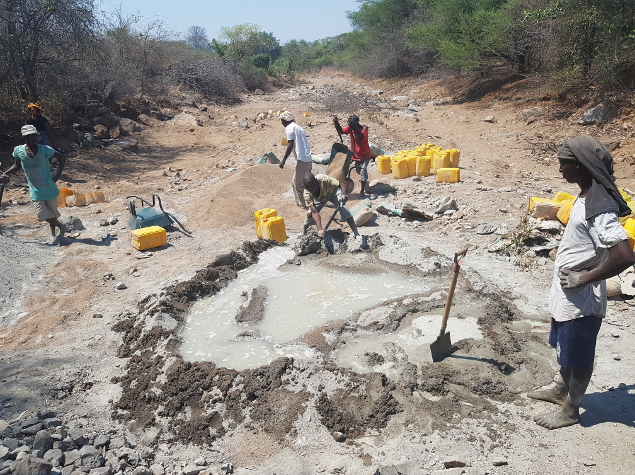
Canchoeira sand dam construction © Excellent Development
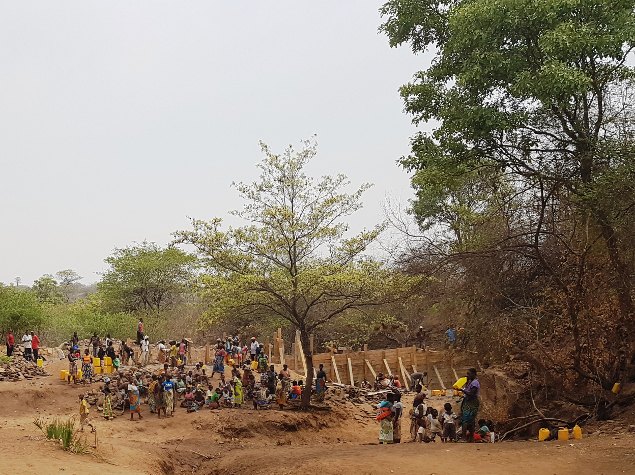
Nhansato sand dam during construction © Excellent Development
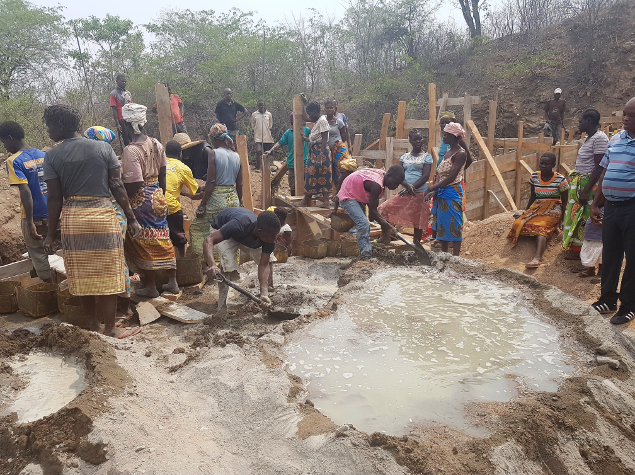
Nhansato sand dam during construction © Excellent Development
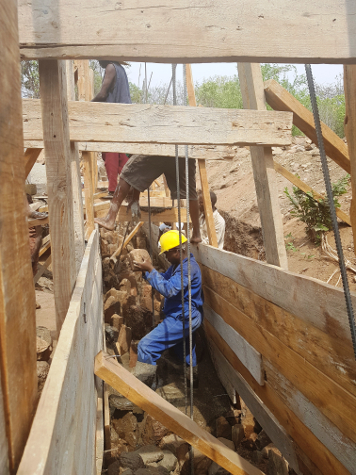
Nhansato sand dam during construction © Excellent Development
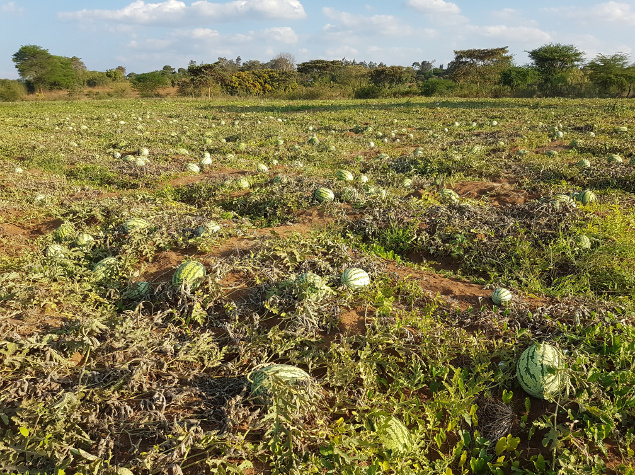
Watermelon and young papaya growing with water from nearby sand dams © Excellent Development
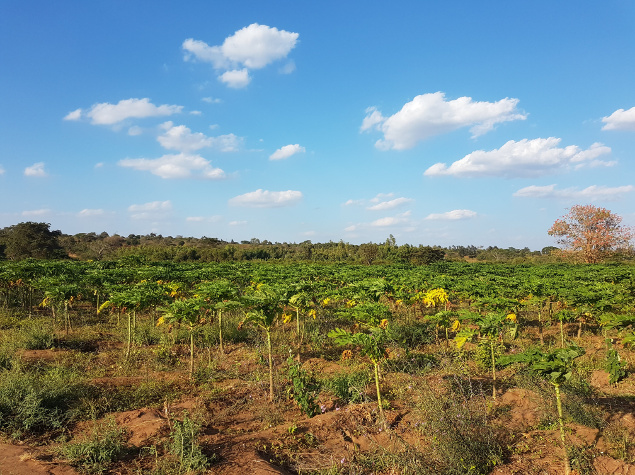
Watermelons and papaya growing with water from nearby sand dams © Excellent Development
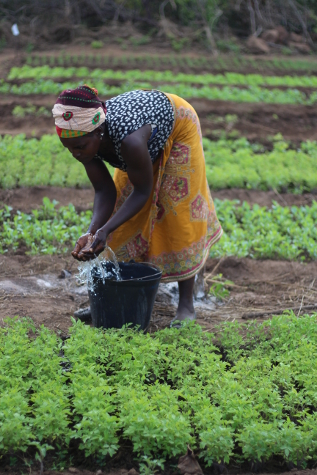
A farmer from the Canchoeira community using water from the sand dam © Excellent Development
